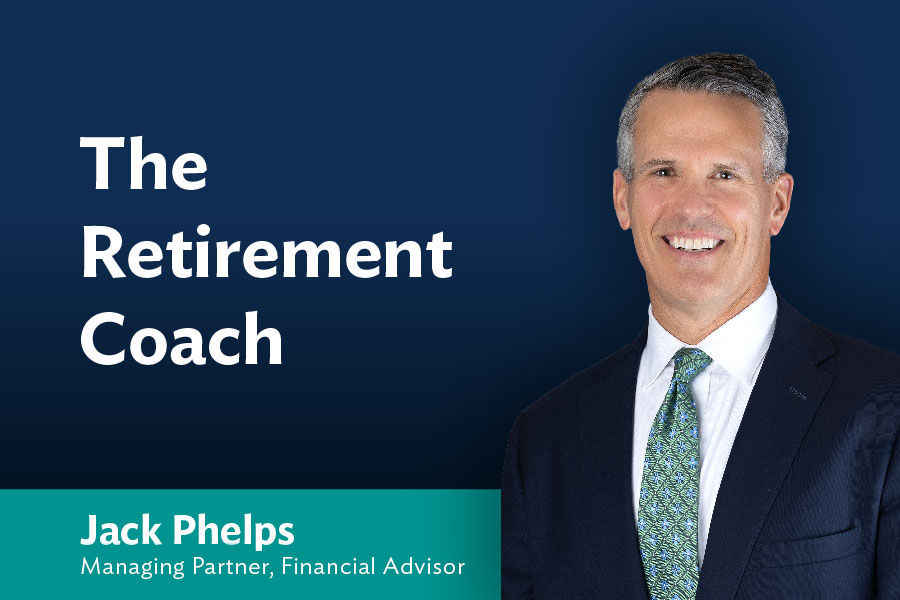A Common Investing Rule of Thumb That Can Be Dangerous

I recently had a great conversation with a very nice couple.. They were well read and brought a lot of questions to the table which I really appreciate.
What motivated this couple to ask questions was the husband was planning to retire after 31 years with his employer, and they now want to get a handle on the right investment allocation in retirement.
They did significant research, and the theory that appealed to them after speaking with their co-workers and friends was the “100 minus your age” theory.
If you’re not familiar with this common theory, it suggests that the percentage of your overall investment allocation you should invest in stocks (or stock mutual or exchange traded funds) is “100 minus your age.”
For example, if you are 65 years old, you should allocate 35% to stocks. (100 – 65).
Let’s put our “rational” hats on for a moment and think about this. Based on this theory, everyone who is 65 years of age should invest 35% of their holdings in stocks and 65% in bonds and money markets.
This is what is known as a classic “rule of thumb” and I have significant challenges with it for you at this critical stage in your life. If the consequences of blindly following rules of thumb weren’t so costly and dangerous, I’d settle for just saying they’re silly, but the stakes are too high.
Rules of Thumb
Why do “rules of thumb” like these exist?
They exist to provide broad guidelines to the biggest audience possible. They have nothing to do with you personally, i.e. your circumstances, priorities, or tolerance for risk.
The question to ask yourself is, “Am I willing to bet my financial future on a broad ‘rule of thumb’ created for the masses?”
Before you answer, think about this. If you have a potentially life threatening medical condition, would you base your actions on what is presented in medical publications as a good “rule of thumb” to follow?
Or, would you prefer to have a prescription and plan designed for you personally by a specialist after a series of tests and evaluations?
I would wager that you’d choose the latter.
Why It’s Different in Phase Two of Your Financial Life
When you’re approaching Phase two of your financial life when you’re dependent on the money you’ve saved to support your lifestyle as opposed to income you earn through work, your overall mindset and strategy have to change because the stakes are so much higher if you fail.
It would be more convenient if there was one answer to the right allocation question, but there simply is not.
Here’s why …
How Dependent Are You?
Let’s take a look at two fictitious couples, both age 62. For simple, round numbers, let’s assume that each couple has $2 million in their retirement portfolio, the same Social Security retirement income, and the same pensions.
Mike and Mary have no mortgage or home equity line of credit, and they have recently completed many major upgrades to their home, including a new roof, indoor and outdoor paint, a new furnace, new kitchen countertops and cabinets, and new bathrooms. They purchased new cars with cash in the last two years which they plan to drive for 10 years since they put very little mileage on their cars.
Ron and Rose still have $370,000 outstanding on a second mortgage they took out to pay for their kids’ college tuitions, weddings, cars, and a condo in Florida they bought a few years back. They both drive high-end cars which they replace every three years, and while their home is very nice, after 26 years, it is starting to look “tired” and will need significant upgrades in the next two years.

Mastering Healthcare Expenses in Retirement
Planning for healthcare in retirement can be complicated, but it doesn’t have to be. Savant’s eBook, Mastering Healthcare in Retirement, explains your options, from Health Savings Accounts to Medicare and Long-Term Care insurance.
What’s the Difference?
The difference in this example is what it costs each couple to support their desired lifestyle. The cash flow that Ron and Rose require to support their desired lifestyle will be much greater than for Mike and Mary.
Consequently, Ron and Rose will need to withdraw a bigger amount each year from their retirement portfolio than Mike and Mary.
In short, it’s clear that Ron and Rose are much more dependent on their retirement portfolio than Mike and Mary.
Without knowing anything else, if both couples have the same amount of money saved, but Ron and Rose need to withdraw much more each year than Mike and Mary, doesn’t Ron and Rose’s retirement portfolio need to earn a greater investment rate of return than Mike and Mary in order to avoid running dry?
Simple math says yes.
Following that same train of thought, if they require a greater investment rate of return, shouldn’t they allocate their investments where they have an increased probability of earning that higher rate of return?
Certainly.
If that’s true, then how can they use the “100 minus their age” theory as a guideline for investing?
The obvious answer is they can’t. It would be foolish. This rule of thumb can’t possibly be appropriate for Mike and Mary and Ron and Rose.
Their level of dependence on their retirement portfolio is too different for that to be possible.
What I’d like you to take away from this is an understanding that, while it might appear so much simpler and require much less work on your part to follow basic “rule of thumb” theories like this, relying on them in your own situation can be dangerously simplistic.
At this critical stage in your life, instead of relying on generic rules of thumb created for the masses, take the time to clarify your priorities, resources, and what it costs you to experience your ideal lifestyle so you can make educated, confident decisions.
This is intended for informational purposes only. You should not assume that any discussion or information contained in this document serves as the receipt of, or as a substitute for, personalized investment advice from Savant.

